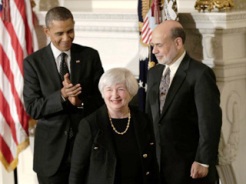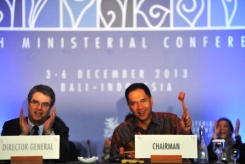By J C Suresh | IDN-InDepth NewsAnalysis
TORONTO (IDN) – A new report has underlined the interdependence of the world economy, which is expected to strengthen in 2014 with growth picking up in developing countries and high-income economies appearing to be finally turning the corner five years after the global financial crisis.
According to the World Bank’s Global Economic Prospects (GEP) report, the firming of growth in developing countries is being boosted by an acceleration in high-income countries and continued strong growth in China. However, growth prospects remain vulnerable to headwinds from rising global interest rates and potential volatility in capital flows, as the United States Federal Reserve Bank begins withdrawing its massive monetary stimulus.










